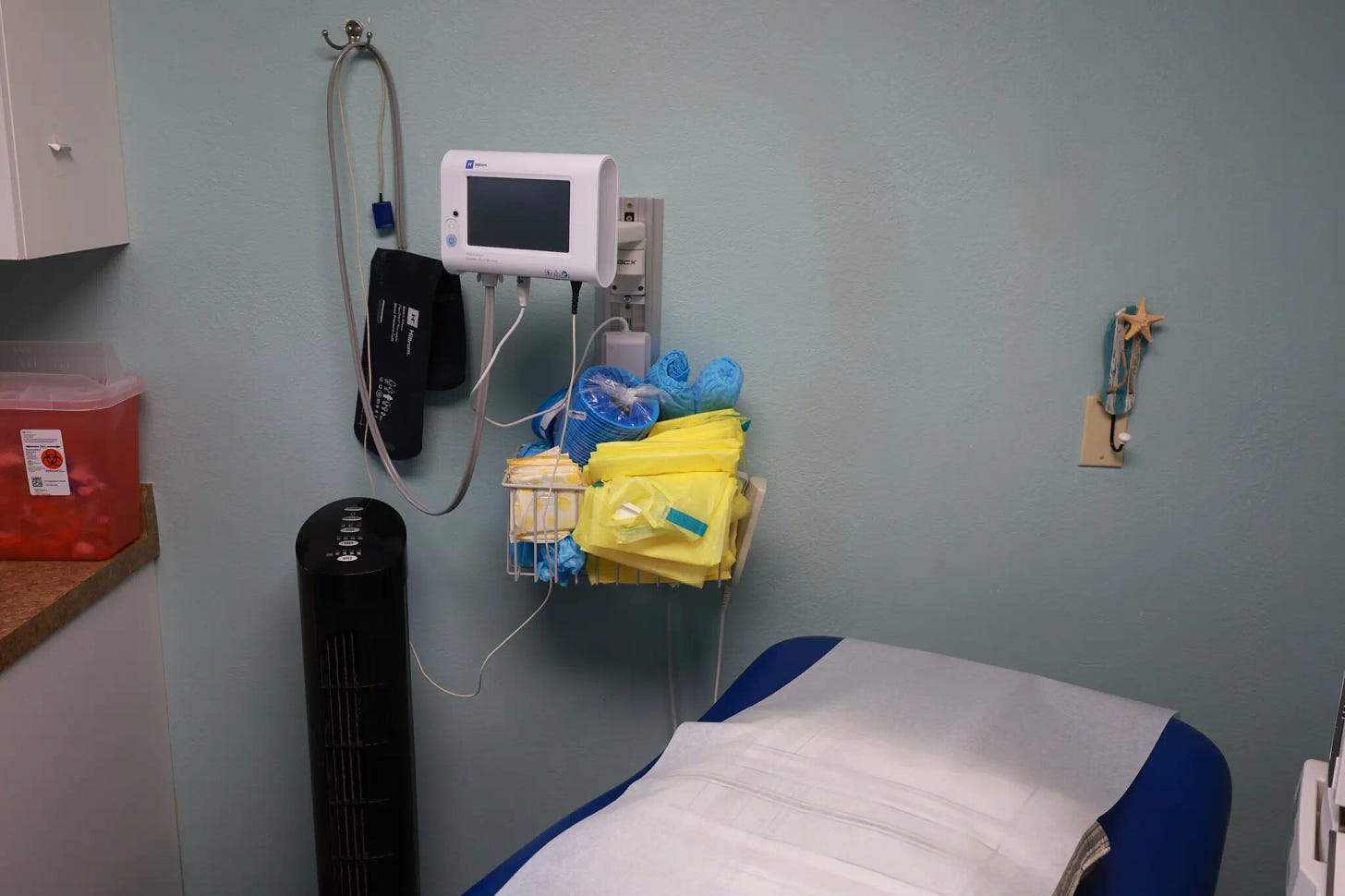Florida To Ban Abortion After Six Weeks
Latest Attack Bans Abortions Before Most Women Know They Are Pregnant

Starting today, Florida will ban abortions after six weeks, before most women find out they are pregnant. The ban had been signed into law back in 2022 by conservative Florida Governor Ron DeSantis, but had been met with several challenges in the state’s courts.
Florida, with a population of 22 million, will now join the several states in the country with near-total abortion bans—concentrated in the poorest regions of the US. This is the latest in a string of attacks on abortion rights in the country, since Roe v. Wade was overturned in 2022 and women in the US were stripped of the reproductive health right.
Roe’s demise in 2022 by an ultra-right Supreme Court was the result of a decades-long attack on abortion rights which the right-wing took all the way to the highest court in the nation and won. This led to a domino effect of severe abortion bans across the country. These include the recent extreme Arizona abortion ban, which upheld a 123-year-old penal code provision which bans all abortions, and carries a sentence of two to five years for abortion providers.
The ban threatens the future of the state’s abortion service providers and abortion funds which provide financial assistance to women who cannot afford abortions, jeopardizing the reproductive rights of millions of women. Abortion clinics may need to shutter if they are forced to stop providing most procedures, and fund providers will have to dig deep to access the money needed to send women seeking abortions out of state. Because of severe restrictions across the entirety of the US South, funds could be forced to find money to send desperate women seeking abortions over 1,000 miles away to Washington, DC, New York or Illinois.

This reality puts women in the difficult position of having to raise enough money for travel costs and take multiple days off of work for a simple medical procedure, a complication that is simply not possible for many working class women living paycheck to paycheck. This could cause women to increasingly seek clandestine, unsafe abortion services, one of the five leading causes of maternal mortality worldwide. A study from the University of Colorado Boulder found that a nationwide ban on abortion would lead to a 21% increase of pregnancy-related deaths.
Florida had previously been a refuge for women seeking abortions from other, more restrictive states in the US South, including but not limited to Texas, Louisiana, Mississippi, and Alabama, which employ near-total abortion bans. In 2023, there was a reported 60% increase in abortions performed in Florida on out-of-state residents from the year before Roe v. Wade was overturned.
Some of the states with the most intense restrictions on abortion have some of the highest rates of poverty in the country, such as Mississippi, Louisiana, Texas, and Alabama. Ironically, these states have some of the harshest conditions for new mothers and families. States such as Florida and Alabama have abysmal sick day and family leave policies, and lack affordable childcare options.
“The restrictions on abortion in Florida and beyond have nothing to do with actually improving people’s lives in the poorest regions of the country. The right-wing uses issues such as abortion to divide people based on issues of so-called morality,” longtime abortion rights organizer Karina Garcia told Peoples Dispatch. “But in reality, these restrictions have nothing to do with morality at all. Because the states where they are enacting the most vicious and cruel restrictions on abortion access are the places where women and families have it the worst.”



